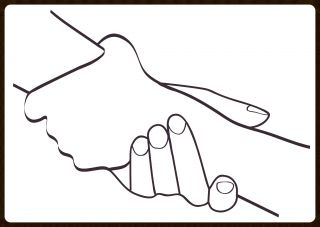Are You Ready to Change?
Change is difficult. Change in regards to substance use is even more difficult. What I love about working with substance use issues is that substances provide an external lens to see a common issue that so many of us have, which is change. The difference with substances is that the drug causes a much stronger physiological and psychological reaction that most things in life, making it that much harder for us to change because not only is our mind resisting the change, but our bodies do too.
So if I were to use addiction as an example, everyone is at a different stage of change. Some people don’t realize they have a problem. Some think they may have a problem. Some acknowledge they have a problem. Some are in thick of trying to change the problem. And finally, some have made the change and are now trying to maintain their gains.
Each of those statements above describes a different stage of change. We’ve all thought about changing ourselves in some shape or form. Should we drink less? Should we lose weight? Should we go out more? Should we stay in more? Should we go back to school? Sometimes we know we definitely need to change, yet other times we’re a little uncertain.
In Motivational Interviewing, a therapeutic approach developed by Dr. William R. Miller and Dr. Stephen Rollnick to foster intrinsic motivation within someone, they describe 5 stages of change.
- Pre-Contemplation
- Contemplation
- Preparation
- Action
- Maintenance
Pre-contemplation refers to those times when you’re even wondering whether you have a problem that needs to be dealt with. Do I drink too much? Do I need to lose weight? These are the questions you might ask yourself. However, as you begin to reconcile these questions, you may move into the contemplation phase where you’ve acknowledged that there is a problem and you start deciding whether you should take action. While you’re in the contemplation phase, you’re starting to weigh the pros and cons. You might be overwhelmed with all that lies ahead so you’re starting to think whether the pros outweigh the cons.
Let’s say you decide the pros are important enough to you, so you start to prepare to take action. You may think to yourself what is the first step I can take? What is the next best step I can take to move myself closer to my ultimate goal? Eventually, you begin to take action and go through the steps you laid out during your preparation. Now the hardest part is often thought of as the maintenance. You’ve heard it said that it takes 21 days to change a habit and although that might be a crude estimate, there is something to it. Change is not overnight. This is the phase where we need to monitor ourselves and track our changes, as small as they may be.
We need to be patient with ourselves because we may jump between stages. It’s completely natural. Sometimes we decide we want to lose weight and start exercising (i.e. Action phase) and then we realize how much work it actually is, so we go back to pre-contemplation and wonder whether we really need to lose the weight. We might think it’s not that bad.article continues after advertisement
As much as we wish our loved ones would be in action or at least contemplation, the truth is they’re not. So then the question is how do we deal with it? We can guide, support, and give advice, but ultimately, it is not on us to make the change or to maintain it. The change is in the hands of the person who has to deal with the consequences everyday. If we were to ask our loved one, “On a scale of 1-10 how likely are you to change?”, many may say 5. Our natural inclination is to get them to a 10. However, that is not the reality. The reality is that we want to know how can they go from a 5 to a 6. A 10 may seem way too far out, if not impossible, and create unrealistic expectations. If you want someone to move from LA to New York, you first have to get them through Las Vegas.
So it doesn’t matter whether you’re trying to lose weight, change jobs, let go of bad habits, we’re all changing. The question is how motivated are we to change? We’re all at different places and each of those places are ok. Don’t think about getting to the end of the journey, but think about what’s the next stop along the journey. It’s not about forcing someone to change, but finding where someone is in the change process. Meet people where they are and work with the tools they have. We can only get to the end of the journey one step at a time.
So what stage are you at? Are you ready to move to the next stage? What is the next best step you can take?
I’ll leave you with a recent quote I read by Marilyn Ferguson,
“No one can persuade another to change. Each of us guards a gate of change that can only be opened from the inside. We cannot open the gate of another, either by argument or by emotional appeal.”

